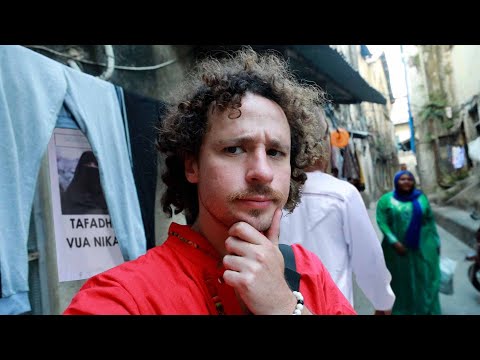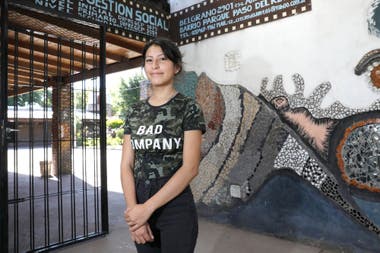The renowned Italian psycho-pedagogue, Francesco Tonucci, has no doubts: the quarantine to prevent the spread of COVID-19 can be a unique opportunity for school, families, and especially boys and girls. ”
Many have not realized that the school had not worked since before, but in this situation it shows a lot
“says the researcher of the Italian National Research Council and responsible for the international project” The city of boys and girls “, for whom the most important question to ask today is” if it is possible to do the same as always, when all conditions have changed. ”
How to make the most of compulsory isolation and turn it into an enriching pedagogical experience? The answer, for Tonucci, is simple
: turning the house into a “laboratory”
where parents are teachers’ assistants and where every space, from the kitchen to an old photo drawer, becomes the opportunity to learn something new.
-What do you consider to be the shortcomings of the school that the quarantine reveals?
-It is not difficult to imagine that everything changed. This is the starting point. If everything changed, the school cannot continue as before. The contradiction that I find is that the school wants to demonstrate that it can continue as before and continues to be an institution of classes and duties, where the only thing that was changed was the medium: instead of being face-to-face, it is done virtually. There are questions like if you can be in front of the screen for so many hours in a row, if all children are able to do their homework that way or if they have the appropriate technology for it. But from my point of view, the most important question is whether it is possible to do the same as always, when all conditions have changed.
-How should education be transformed and adapted in this context?
-Albert Einstein used to say: “If you have a desire for change, you cannot continue doing the same”. He also said that crises can be a great opportunity for people and countries, because they bring about changes. If the school was happy and satisfied with how it worked, I understand that it will seek to stay the same. But, from my point of view, it did not work before, because, many times, it is an institution that is done in spite of the students: everything is decided from the outside and without taking them into account. Children practically do not exist, they do not appear in their worries. There are regulations, programs, textbooks, and none of these instruments question students by asking them what they want to do, what their desires, skills, and abilities are. Article 29 of the Convention on the Rights of the Child, which in Argentina has a constitutional hierarchy, says that the objective of education should be to develop the capacities and aptitudes of students to the highest possible level.
From my point of view, the school no longer worked from before and the quarantine does nothing more than prove it: it is an institution that does not take into account boys and girls
Francesco Tonucci
-How is it applied in times of mandatory isolation? How to make the most of this situation so that boys and girls can continue learning?
-My proposal can be considered almost banal: if we have to do school at home, we take advantage of the house. That the home be considered a laboratory and the parents, laboratory assistants. Thus, we can also face a second issue: not only did the school not work well before, but it lived in constant conflict with the family, which is always ready to denounce the school. Now, the situation is new, school is done as a family, at home. You need to ask parents to help children understand and know things they don’t know, for example how to use machines in the home for new experiences: putting clothes to wash or dry, iron, sew on buttons, remove a plug. All safely and assisted by parents, of course. In short, getting to know this world that is that of the home, doing operations that boys often do not do and, when they start doing them, only girls do them because they are considered feminine tasks.
Putting clothes to wash or dry, ironing, sewing on buttons, removing a plug are all experiences from which you can learn a lot.
Francesco Tonucci
-What other spaces in the home can be useful to learn new skills?
-The kitchen, for example, is a chemistry laboratory: there is no doubt about that. There the ingredients are weighed, mixed, they must be cooked using different methods. I would like the school to propose to the children, for example: “For tomorrow, each one has to prepare a sauce, according to the custom of each family. Then, you have to share it, value it among all the members of the household and write a recipe ” In this way, many typically school disciplines, such as physics, chemistry and literature, are being treated, but in a different way. Another example is history: the drawers of the house are full of history, that of the children, through photographs and from birth. With parents, they can go through them together, put them in order, make time lines and, with all that, when they return to class they can make a book with the history of each student.
-Without a doubt, this is an unprecedented experience not only for adults, but also for boys and girls. How can we help them “get clean” their emotions in such a particular context?
-A good way would be for the school to suggest to each boy or girl to make a journal. These children are living an experience that we hope will be unique in their life. They will not see the time when it ends to forget it, but I think it would be a shame if they forget it, because they are living strange experiences and feelings in a small world, which is the house. The other day I spoke with the Minister of Education of Argentina [Nicolás Trotta] and he told me that I send notebooks to the children. It would be good if one of those notebooks is for a personal journal and, if the boys want it, it should be secret, because they have the right to an intimate, reserved life. Perhaps the school may ask itself, “If it is secret, how can I evaluate it?” Well, he doesn’t evaluate it: he gives it to the children. When I talk to boys and girls, I always tell them that making a journal is worth it, because in many years they will be able to read it with their children and it will be a great emotion.
-You often say that school fails to promote the habit of reading in children, why?
-The school never manages to obtain a love for reading and this is a failure that I always denounce, a great lack, because it would be the greatest gift that it could make to its students: give them love, pleasure, pleasure, the need for reading. Asking them to take advantage of this type to read books is essential: whatever they find at home, it is not important that they be for adults as long as the parents approve them. If there are no books in the home, let the school find a way to send them to you. It is important that they can read them not to make summaries or index cards, but as a gift, not as a duty. If you want, you can then share it with the teachers, for example make a debate about what you think of what you read.
-As parents, what can be done to encourage this habit?
-A special habit can be reading with the family: that every day find a schedule, it can be half an hour, and a corner of the thing where you read a book together, aloud, as if it were a theatrical show, a soap opera. A little every day until finishing a book and then starting another. I am convinced that these are experiences of great emotional value and, therefore, educational, that the school can take advantage of, because the good school is the one that is built on the world of children. Right now, the world of children is small: their home. If you do this experience and learn to implement it, when the quarantine is over, you can continue to build such a school in the big world: the street, the neighborhood, the city. In short, the world where boys and girls should live their lives, which is not only their home or their school.
FURTHER
.
Publicado en el diario La Nación




